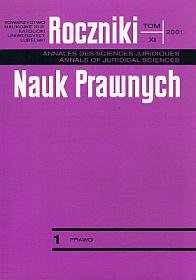Extralegal Conception of a Cooperative
Abstract
The paper touches upon the question of the extralegal conception of a cooperative. First the cause and circumstances under which the cooperative movement was established. The conception of the cooperative movement has been explained. The cooperative ideas have been briefly outlined such as: the communist idea of cooperativeness, conception of cooperatives, based on the Rochdale principles, individualistic conception of cooperatives, and the new theoretical conceptions which have recently been established. Then the distinction has been made between the legal and extralegal conception of a cooperative. Legal and extralegal definitions of a cooperative have been broadly shown. This distinction has been stressed. In this context the paper refers to the significance of cooperative principles issued by the International Cooperative Association.
Then attention has been made to the ideas upon which the cooperative law is currently based. Here the concept of solidarity and individuality of a cooperative member has been pinpointed. The significance of solidarity has been emphasized. It has been pointed that a member is the end of a cooperative’s action. In the present legal state, in principle, a group cannot be the end of a cooperative’s action. Then the extralegal characteristics of a cooperative have been pointed, i.e. those which have not been included into the legal definition of a cooperative, but they are its inherent part: These characteristics are as follows: cooperation, self-governance, and self-responsibility.
Copyright (c) 2001 Roczniki Nauk Prawnych

This work is licensed under a Creative Commons Attribution-NonCommercial-NoDerivatives 4.0 International License.


